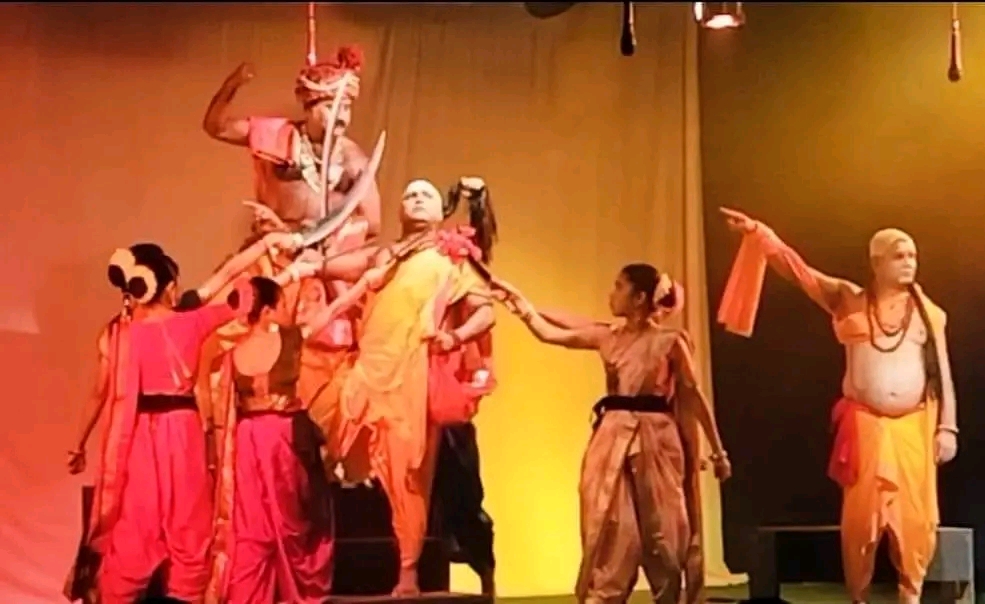By Manoj Kumar Ojha
Guwahati: The LMB school of drama under the banner of Pinaki staged a historical play titled, ” Aham Chanakayam Vdami ” ( I am Chanakya speaking) at the auditorium of Doomdooma College, Kallol in Tinsukia district of upper Assam.
The play was written and directed by noted Assamese playwright , director and actor Joysurjya Bora .
It was a 90 – minutes show .All the actors enthralled the audience through their acting .
The artistes who enacted different characters in the play are — Rohan Das , Swarnab Talukdar , Monjit Gogoi , Subhashish Mallik , Rajib Sarma , Monoj Baruah , Saranga Nath ( Sanju ) , Dharmendra Borah , Lakhyajyoti Mahanta, Dwijen Sarma, Abhijit Khataniar,Deben Deka among others.
The music was composed by Nayan Deka assisted by Prankrishna Das .
The play was formally inaugurated by principal of Doomdooma College Dr Kamleswar Kalita .
Chanakya, also called Kautilya or Vishnugupta, (flourished 300 BCE), Hindu statesman and philosopher who wrote a classic treatise on polity, Artha-shastra (“The Science of Material Gain”), a compilation of almost everything that had been written in India up to his time regarding artha (property, economics, or material success).

He was born into a Brahman family and received his education at Taxila (now in Pakistan). He is known to have had a knowledge of medicine and astrology, and it is believed he was familiar with elements of Greek and Persian learning introduced into India by Zoroastrians. Some authorities believe he was a Zoroastrian or at least was strongly influenced by that religion.
Chanakya became a counselor and adviser to Chandragupta (reigned c. 321–c. 297), founder of the Mauryan empire of northern India, but lived by himself. He was instrumental in helping Chandragupta overthrow the powerful Nanda dynasty at Pataliputra, in the Magadha region.
Chanakya’s book came to be Chandragupta’s guide. Each of its 15 sections deals with a phase of government, which Chanakya sums up as “the science of punishment.” He openly advises the development of an elaborate spy system reaching into all levels of society and encourages political and secret assassination. Lost for centuries, the book was discovered in 1905.

Compared by many to Italian statesman and writer Niccolò Machiavelli and by others to Aristotle and Plato, Chanakya is alternately condemned for his ruthlessness and trickery and praised for his sound political wisdom and knowledge of human nature. All authorities agree, however, that it was mainly because of Chanakya that the Mauryan empire under Chandragupta and later under Ashoka (reigned c. 265–c. 238) became a model of efficient government.

